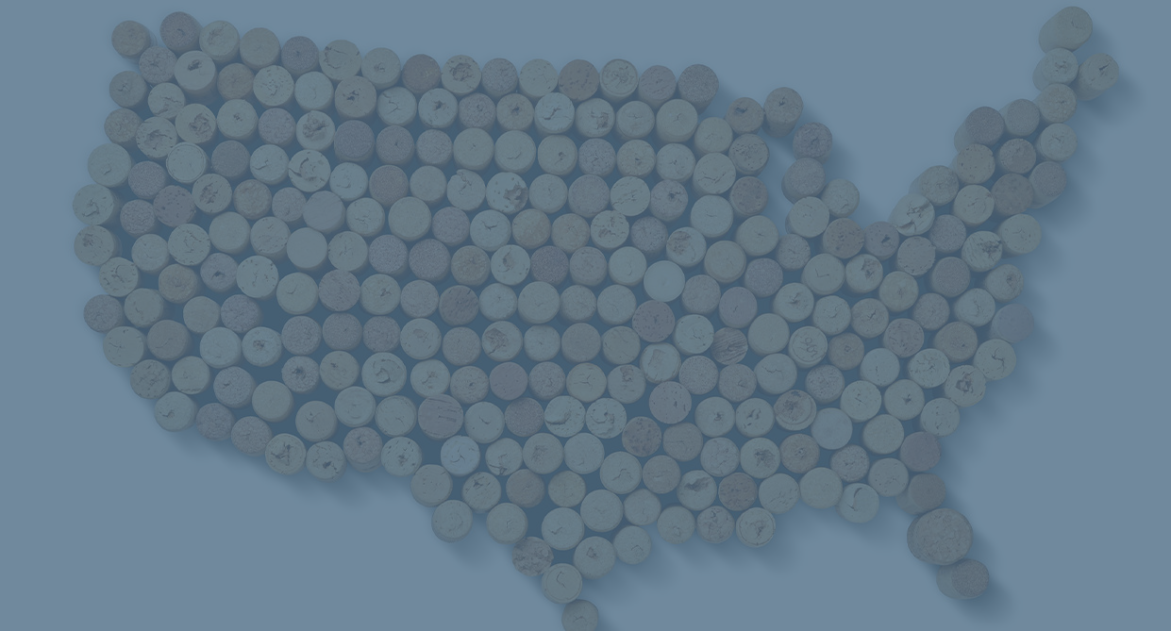Uncover trends we spotted and our predictions for new legislation as we head into 2021.
Whatever became of the 2020 legislative session, you ask? Well, I tracked more than 200 bills related to alcohol, but only 53 of them made it to their respective governor’s desk.
In early 2020, lawmakers convened within their own states to consider the legislative bills that had been submitted as new laws or proposed changes to existing laws. Although most of the legislative sessions started in a very routine way, the COVID-19 pandemic ensured that most sessions took a left turn at some point. Some states were able to accomplish a fair amount of legislative review and progress, some states didn’t get far at all, and some are still in session.
This year, one thing that most state legislatures had in common was an unexpected early adjournment, if only to pause and figure out how to proceed with virtual hearings and votes. Additionally, many states simultaneously experienced a sudden barrage of bills that addressed the emergent needs during the pandemic. There were bills that addressed state government authority to declare an emergency, bills that granted budgetary changes, bills that provided health and safety provisions, and bills that sought to throw lifelines to businesses.
Regarding alcohol legislation, I saw some recurring themes, the most common being to allow for alcohol take-out and delivery from on-premises retailers. Although similar in topic, each state’s “alcohol to go” bill provided for varying periods of relief and with different limitations on the type of alcohol.
The following states passed permanent privileges that allow on-premises retailers to sell alcohol to-go:
- Georgia – beer and wine only – does not include mixed beverages
- Iowa – including mixed beverages
- Ohio – including mixed beverages
- Oklahoma – beer and wine only – does not include mixed beverages
The following states passed temporary provisions for alcohol to-go:
- Colorado – until July 2021 – including mixed beverages
- Illinois – until June 2021 – including mixed beverages
- Kansas – until January 26, 2021 – including mixed beverages
- Massachusetts – until the emergency order is lifted – includes mixed beverages
- Michigan – until December 2025 – including mixed beverages
- Pennsylvania – until the emergency order is lifted and 60% occupancy is allowed – including mixed beverages
As a point of clarity, many other states issued executive orders that temporarily allow similar privileges, but because these orders weren’t passed through the legislature, they aren’t included in the narrowly-defined lists above.
Another recurring theme in the 2020 legislative session was to allow for age verification by alternative forms of identification. South Dakota passed a bill allowing tribal IDs, while Wyoming and Louisiana passed bills allowing digital IDs (note that the Louisiana ATC had actually approved digital IDs last year).
Also seen in several states were bills to remove residency requirements for licensees. This came as no surprise after the US Supreme Court ruled in 2019 against a long-standing residency requirement in Tennessee. So, during the 2020 legislative session, Maryland, Virginia, and West Virginia successfully removed their residency restrictions for retail licensees. Indiana, Kentucky, and Tennessee had similar bills, but they did not get full hearings before their respective legislative sessions adjourned for the year. I fully anticipate that these bills will continue on or be re-introduced during the 2021 legislative session.
There were a few other noteworthy bills that I saw pass this year, including West Virginia successfully transitioning their 13 remaining “dry” counties to “wet,” New York allowing spirits to be used in the manufacture of boozy ice cream, Ohio allowing boozy ice cream manufacturers to sell to retailers, and Mississippi creating a task force to discover what will become of their control state operations for the wholesale and distribution of spirits. Michigan also made a couple of changes like permitting 2-for-1 drinks at on-premises locations, as well as allowing on-premises licensees to purchase up to 120 liters of spirits from specially designated package stores each year. Kentucky moved to allow out-of-state package retailers to ship to residents in the state, Colorado agreed to raise the cap on fines to $100,000, and Washington DC is now allowing grocery stores to obtain concurrent on-premises licenses.
Looking forward, I expect the 2021 state legislative sessions to be robust. I also anticipate that the retail tier will urge lawmakers to double-back and revisit the bills that didn’t make it through in 2020, as well as make permanent the privileges that are only temporarily being realized by way of executive orders. There will be several advocacy groups urging legislators to advance permanent alcohol to-go rules, expansions of third-party delivery options, common area and patio dining allowances, and probably even a few hard-coded clarifications as to what constitutes an “essential business.”
Have questions? Contact Wendy Turk, Director of Regulatory Affairs at wturk@fintech.com.






